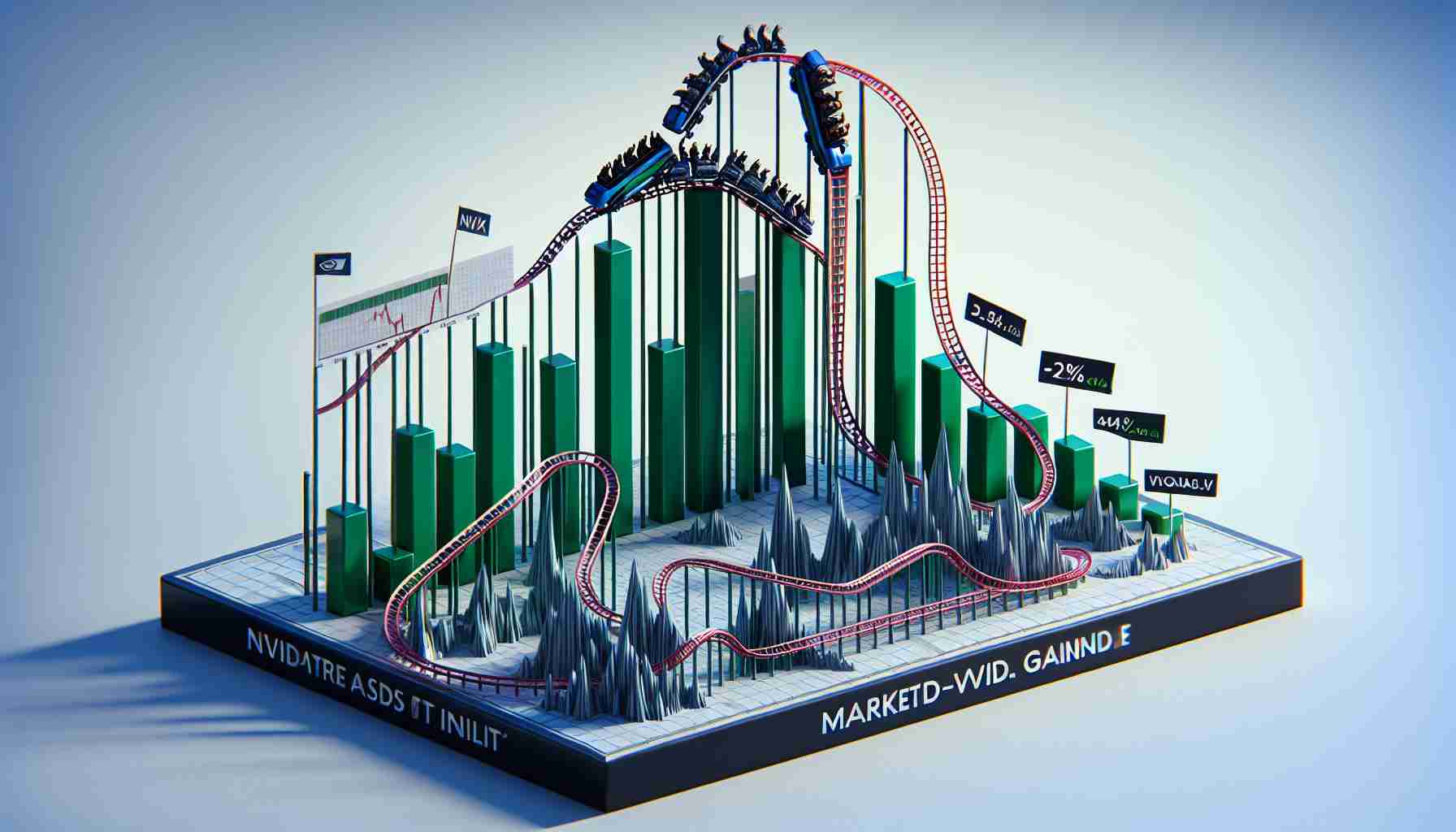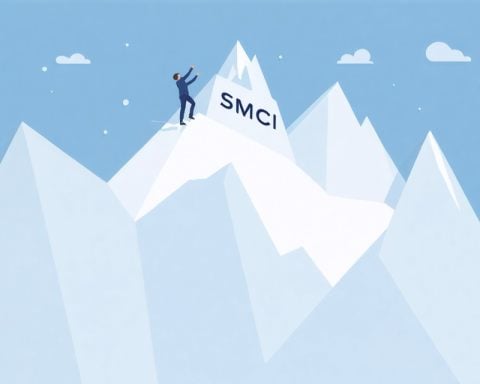- The stock market closed lower on Friday amid concerns over new tariffs from the White House.
- President Trump’s proposed tariffs include 25% on Canadian and Mexican imports, and 10% on Chinese goods.
- Despite early gains driven by positive inflation data and Apple’s strong earnings, major indices fell sharply by the end of the day.
- Nvidia experienced a significant loss of market value, raising concerns about its profitability following the introduction of a cheaper AI model.
- Historically, January has been a strong month for the stock market, with notable increases in the Dow and S&P 500.
- Advancements in AI technology may lead to enhanced economic productivity and potential market resilience in the future.
The stock market experienced a wild ride on Friday, closing lower as investors absorbed the impact of impending tariffs announced by the White House. President Trump’s plan to impose a 25% tariff on Canadian and Mexican imports and a 10% tariff on Chinese goods sent ripples through Wall Street.
Initially buoyed by positive inflation data and robust earnings from tech giant Apple, all three major indexes surged in the morning, but the mood quickly soured. The Dow Jones Industrial Average plunged 340 points, while the S&P 500 and Nasdaq ended the day down 0.5% and 0.3%, respectively. Apple’s fortunes shifted dramatically, turning a promising 4% gain into a slight loss.
However, the headline grabber was Nvidia, once heralded as a market leader. The company’s shares sunk over 3.7%, marking a staggering loss of $553 billion in market value in just a week. The introduction of a cheaper AI model by DeepSeek raised serious questions about Nvidia’s future profitability, igniting fears across the tech sector. To put Nvidia’s woes in perspective, its market plunge over the last week surpassed the entire market cap of Novo Nordisk, Europe’s largest public company.
Despite this tumultuous day, January remains a standout month historically, with the Dow rallying nearly 5% and the S&P up almost 3%. Experts suggest that advancements in AI could foster broader economic productivity, hinting at a potentially resilient stock market moving forward.
Key takeaway: As tariffs loom and Nvidia falters, the stock market’s resilience showcases the complexity of economic dynamics in a rapidly evolving tech landscape.
Market Turbulence: What You Need to Know About Stock Market Trends
The Stock Market’s Rollercoaster Ride: An Overview
The stock market has been showing volatility driven by various factors, including the impact of impending tariffs, inflation data, and notable earnings reports from major tech companies. As investors assess these developments, understanding the changing landscape of the market becomes crucial.
Key Features and Limitations of Current Market Dynamics
1. Market Features:
– Inflation Data: Recent positive inflation figures uplifted market sentiment before the focus shifted to tariffs.
– Technology Sector Volatility: Companies like Nvidia have experienced significant market cap drops due to competitive pressures and innovations from other firms.
– Diverse Reactions: Different sectors are responding variably to tariffs and technological advancements, indicating a complex market environment.
2. Limitations:
– Uncertainty of Tariffs: The announcements of tariffs on imports can lead to increased production costs, thereby affecting corporate profits and investor confidence.
– Competitive Destruction in Tech: The rapid development of AI models demonstrates how quickly market positions can change, posing risks to companies that fail to adapt.
Key Pros and Cons of Investing in Tech Stocks Right Now
Pros:
– Potential for Innovation: Continued advancements in AI and tech can drive future growth opportunities.
– Strong Historical Performance: The stock market has shown resilience historically, bouncing back from downturns.
Cons:
– Market Volatility: Fluctuations, like those seen with Nvidia, can lead to significant financial risk.
– Tariff Impact: Imminent tariffs may spark inflation, adversely affecting profit margins across various sectors.
Market Predictions and Insights
Experts predict that while immediate volatility may persist due to tariff implementation, the continued advancements in AI and technology could invigorate the economy, offering a pathway to recovery and long-term growth. The recent drops in stock values may present buying opportunities for savvy investors willing to withstand short-term fluctuations.
Frequently Asked Questions
1. How might tariffs on imports affect the tech industry?
– Tariffs could increase production costs for tech companies that rely on imported components, potentially squeezing profit margins and leading to higher prices for consumers.
2. What are the implications of Nvidia’s recent decline?
– Nvidia’s drop in market value raises concerns about the competitiveness of established players in the AI sector. If new entrants continue to innovate at a faster pace, Nvidia may need to rethink its strategies.
3. Is the stock market expected to recover despite these challenges?
– Many analysts believe that the stock market has the potential to recover over time, primarily due to the ongoing innovations in technology and AI that could drive economic growth.
Suggested Related Links
finance.com – Stay updated with the latest market trends and insights.
investopedia.com – Learn more about investment strategies and stock analysis.
forbes.com – Read expert opinions on market forecasts and economic analyses.
In conclusion, navigating the current uncertainties within the stock market requires keeping abreast of developments, recognizing the volatility, and understanding the potential impacts of tariffs and technological advancements.























